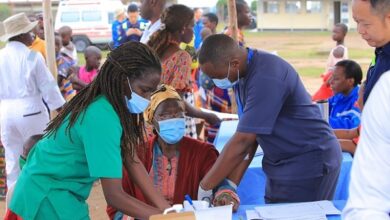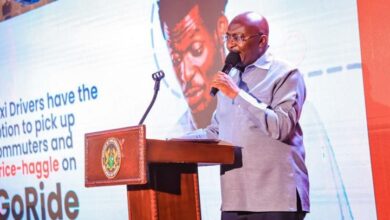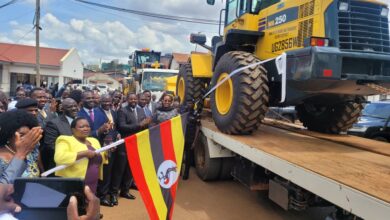Digital agriculture is a key pathway to Africa’s food system transformation
These advancements improve operational efficiency and support sustainable practices by minimizing waste and environmental impact.

Op-Ed: Across multiple industries globally, digital technologies are taking over, bringing about new efficiencies, enhanced productivity and resilient smart farming.
Agriculture and food systems have not been excluded – precision farming, powered by GPS and IoT sensors, which allow farmers to monitor crop health and soil conditions in real-time, is becoming commonplace. The data from such systems is instrumental in optimizing the use of resources like water and fertilizer.
At the same time, automated machinery and drones are streamlining planting, weeding, harvesting, and crop monitoring for diseases, reducing labour costs and increasing yields. AI tools are helping optimize the use of resources like water, fertilizers, and pesticides, leading to more efficient farming practices.
AI-powered tools are providing real-time insights into crop health, soil conditions, and weather patterns, enabling farmers to make precise decisions about planting, irrigation, and harvesting and these can predict crop yields based on various factors, helping farmers plan better and reduce waste. These advancements improve operational efficiency and support sustainable practices by minimizing waste and environmental impact.
In addition to these on-field innovations, digital platforms are revolutionizing agricultural marketing and quality control. Online marketplaces and digitally driven farm-to-table initiatives enable farmers to reach consumers directly, bypassing traditional supply chains.
Data analytics tools help producers make informed decisions based on market trends and consumer preferences. Together, these digital transformations are reshaping the agricultural landscape, making it more efficient, transparent, and responsive to market demands and environmental challenges.
However, despite these technologies being in development for several decades and being widespread in the developed world, they have yet to fully enter African farms at the scale required to transform their food systems. Even though African farmers are eager to access many of these technologies, they are limited by several factors.
Infrastructure challenges, including low electricity and internet penetration, are top of the list. At 40%, Sub-Saharan Africa has the lowest electricity access in the world, leaving more than two-thirds of the continent in the dark. Internet penetration is equally low, with only 37% of the continent’s population connected, far below the 66% global average.
Other challenges limiting the penetration of digital agricultural technologies include economic factors like inadequate funding and investments. As per recent estimates, Africa’s agri-SME sector has annual funding needs of $160 billion, but just 34% is honored, leaving a $106 billion gap.
Multiple engagements have sought to bridge this gap, including various continental declarations pushing African governments to increase the shares of their budgets allocated to agriculture to at least 10%, but nearly all fall far below. This leaves inadequate financial room for innovation.
There is a wide digital divide in Africa influenced by several factors including adequate infrastructure with many areas, especially rural and remote regions, lacking the necessary infrastructure for reliable internet connectivity.
The high cost of devices and data plans makes it difficult for many people to access digital technologies. Poverty and economic disparities mean that many people cannot afford digital devices or internet access and cultural and social norms often restrict women’s access to digital technologies, contributing to a significant gender digital divide.
Moreover, digital literacy is still in its infancy across Africa compared to European countries. In the Netherlands, nearly 80% of the population has at least basic digital skills, and this is reflected in the country’s agricultural sector, where precision farming dominates. This makes the country the second largest exporter of agricultural produce in the world, after the United States, another country with an equally high digital literacy rate.
Data security concerns also limit the growth of Africa’s digital agriculture by creating barriers to adopting advanced technologies and practices. Various stakeholders are hesitant to fully deploy digital solutions due to worries about data breaches, unauthorized access, and loss of sensitive information. Such security issues can undermine trust in digital agricultural solutions, hinder the sharing of valuable agricultural data, and prevent the widespread implementation of tools that could enhance productivity and efficiency.
However, the biggest limitation is in policy, with regulatory frameworks in Africa being inconsistent or underdeveloped. Notably, Africa’s policy environment has yet to develop enough to foster the participation of innovators across the agri-food value chains. In some countries, the cost of market entry, including for new and potentially impactful technologies, is greatly heightened by taxes and other bureaucratic requirements, locking out many innovative solutions.
Despite these challenges, there are notable efforts to integrate digital technologies into African agriculture. Several organizations and individuals are hard at work developing technologies and platforms that work for African environments, some of which have successfully been introduced to markets.
A notable example is the Agribot, developed by AGRA and Microsoft to provide valuable agricultural information to farmers through SMS and social media platforms like WhatsApp and Telegram.
This tool has helped support extension service provision by enabling farmers to find solutions to their common challenges quickly.
Meanwhile, Value4Her Connect, an agribusiness digital marketplace, has helped link women in agriculture to markets, peer networks for knowledge-sharing, and other forms of agricultural production support, including financing.
Separately, realizing the mechanization gap in Africa, a group of innovative youth founded Hello Tractor a few years ago as a digital solution that is today linking more than 1 million farmers across 18 African countries to mechanization services.
This is a timely solution in an environment where farmers have 10 times fewer mechanized implements per farm area than their counterparts from other developing regions. But Hello Tractor can only do so much without the dedicated support of other stakeholders, including governments, which should strive to create a conducive policy environment for such innovations. The private sector, research community, media, and independent innovators also have a role to play in accelerating and sustaining the impact of pioneer innovators.
AGRA has also started the development of an Integrated Digital Platform to support youth and women in business with empowerment and employment opportunities. An integrated digital platform is designed to connect various applications, systems, and data sources and allows for seamless communication and data exchange between different components, enhancing efficiency and productivity.
Many of these stakeholders will be convening at the Africa Food Systems Forum in Kigali, Rwanda, in early September, where their position in innovation will be explored in depth. This year’s event is focused on driving the participation of youth in Africa’s food system transformation, and digital innovation is a major theme. Some key topics of discussion this year include among other, agriculture roadmaps and collaborative integrated data management systems, while showcasing evidence from some countries and pathways to scaling those.
Leveraging analytical and regenerative AI as disruptive solution to boost agrifood systems in Africa and the nexus between digital public infrastructure and food systems transformation. It will be exciting to see the kind of ideas and partnerships that will emerge from the conference, as these are bound to positively influence the direction of the continent’s agri-food systems going forth.
The authors are George Marechera and Dickson Naftali
About author: George Marechera is the Head of Digital Systems and Solutions for Agriculture, AGRA while Dickson Naftali is the Head of Thematic Platforms and Innovations, Africa Food Systems.
Disclaimer: As UG Reports Media LTD, we welcome any opinion from anyone if it’s constructive for the development of Uganda. All the expressions and opinions in this write-up are not those of UG Reports Media Ltd. but of the author of the article.
Would you like to share your opinion with us? Please send it to this email: theugreports@gmail.com.






